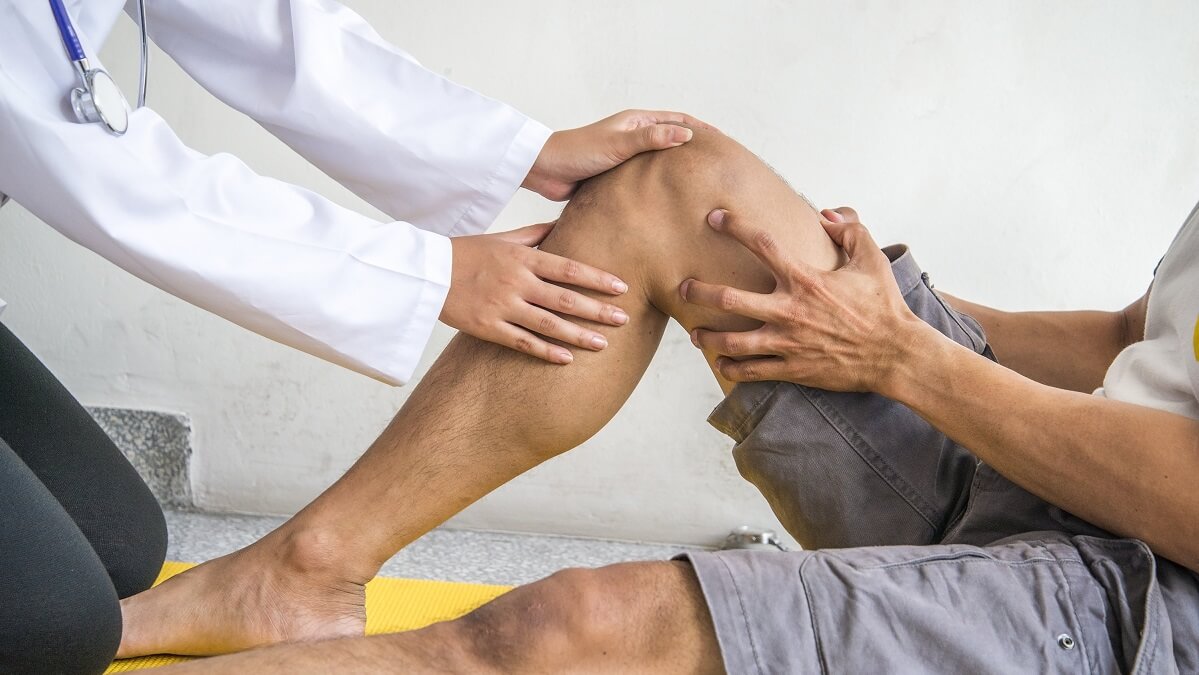Maintaining a healthy weight could reduce the need for knee replacements by as much as 30 per cent, according to a new study.
For the past few years, I have struggled with knee pain, and that has hampered my ability to play cricket. Part of my problem has been degenerative osteoarthritis, but perhaps the more significant issue has been weight gain.
A new study, led by Monash University and published in Osteoarthritis and Cartilage, suggests that preventing excessive weight gain in early adulthood plays a key role in ‘saving’ your knees, which in turn could save the health system as much as $373 million per year.
Read: How to manage knee pain
The study accessed more than 24,000 National Joint Replacement Registry records and identified six distinct trajectories of BMI (Body Mass Index) from early adulthood (age 18-21 years) to late midlife (about 62 years). These included:
- Group 1: lower normal to normal BMI (19.7%)
- Group 2: normal BMI to borderline overweight (36.7%)
- Group 3: normal BMI to overweight (26.8%)
- Group 4: overweight to borderline obese (3.5%)
- Group 5: normal BMI to class 1 obesity (10.1%)
- Group 6: overweight to class 2 obesity (3.2%).
Results of the study showed that the risk of requiring a knee replacement increased in all groups when someone progressed into a higher weight group. Over 12.4 years, 1328 (5.4 per cent) subjects had a total knee replacement.
An estimated 28.4 per cent of knee replacements could be prevented if people moved to one group lower, with an average 8-12kg weight loss from early adulthood to late midlife. This could save $373 million in annual health costs.
Read: Confusion over who can access weight-loss drug
Senior author of the study, Professor Flavia Cicuttini, who heads the School of Public Health and Preventive Medicine’s Musculoskeletal Epidemiology Unit at Monash, explains that while weight loss is recommended for people with osteoarthritis who are overweight or obese, this is often too little too late.
“Preventing weight gain is feasible and effective in improving osteoarthritis health outcomes,” she says.
“Focusing on prevention, with small average long-term changes in energy balance, can make a big difference. Reducing your caloric intake just slightly each day builds up to avoiding eight to 12kgs of weight gain over a couple of decades, saving money and avoiding surgery. This also has cardiac health benefits.”
Prof. Cicuttini says that eating the average equivalent of two fewer pieces of chocolate per week, or adding 10 minutes of exercise, can prevent the “insidious” 500 gram to one kilo weight gain per person per year in Australia.
“This can result in tangible health gains, improving lives and saving money,” she says.
Prof. Cicuttini says a “call to action” is needed for knee joint health.
“We also need to be sending out the message that it is important to make sure that people don’t continue to gain more weight,” she says. “Although recommendations to lose weight are important if a person is carrying excess weight, this can be difficult to achieve for most people.
“Too often we see people with knee pain, advise them to lose weight, only for them to return five years later having gained a further three to five kilos. This is a missed opportunity because it is easier to prevent further weight gain than it is to lose it.”
Read: Are stem cells the magic bullet for osteoarthritis?
That’s not to say that there’s nothing those of us over 50 and overweight can’t do to alleviate at least some of our knee pain. I weigh several kilos less now than I did a year ago, and my knees are already thanking me. But, in line with the general rule of health, prevention is better than cure.
One of my hopes is that my sons, themselves now at the young adult stage, will learn from my experience, which now has a peer-reviewed study to back it up. I am maintaining a fairly active lifestyle and still getting out on the cricket pitch, but my knees remind me at the end of each day’s play of what I’ve put them through.
I have more weight to lose, which will help my knees further, but by directing my sons – who are fortunately avid devourers of science – to the Monash University study, I will hopefully help them avoid some of the knee challenges I have faced.
It may be too late for you, but alerting the young adults in your life to the new study’s findings could save them a lot of pain, and their knees from needing a replacement.
Have you had to have a knee replacement? What was your experience of the procedure? Why not share your thoughts in the comments section below?

